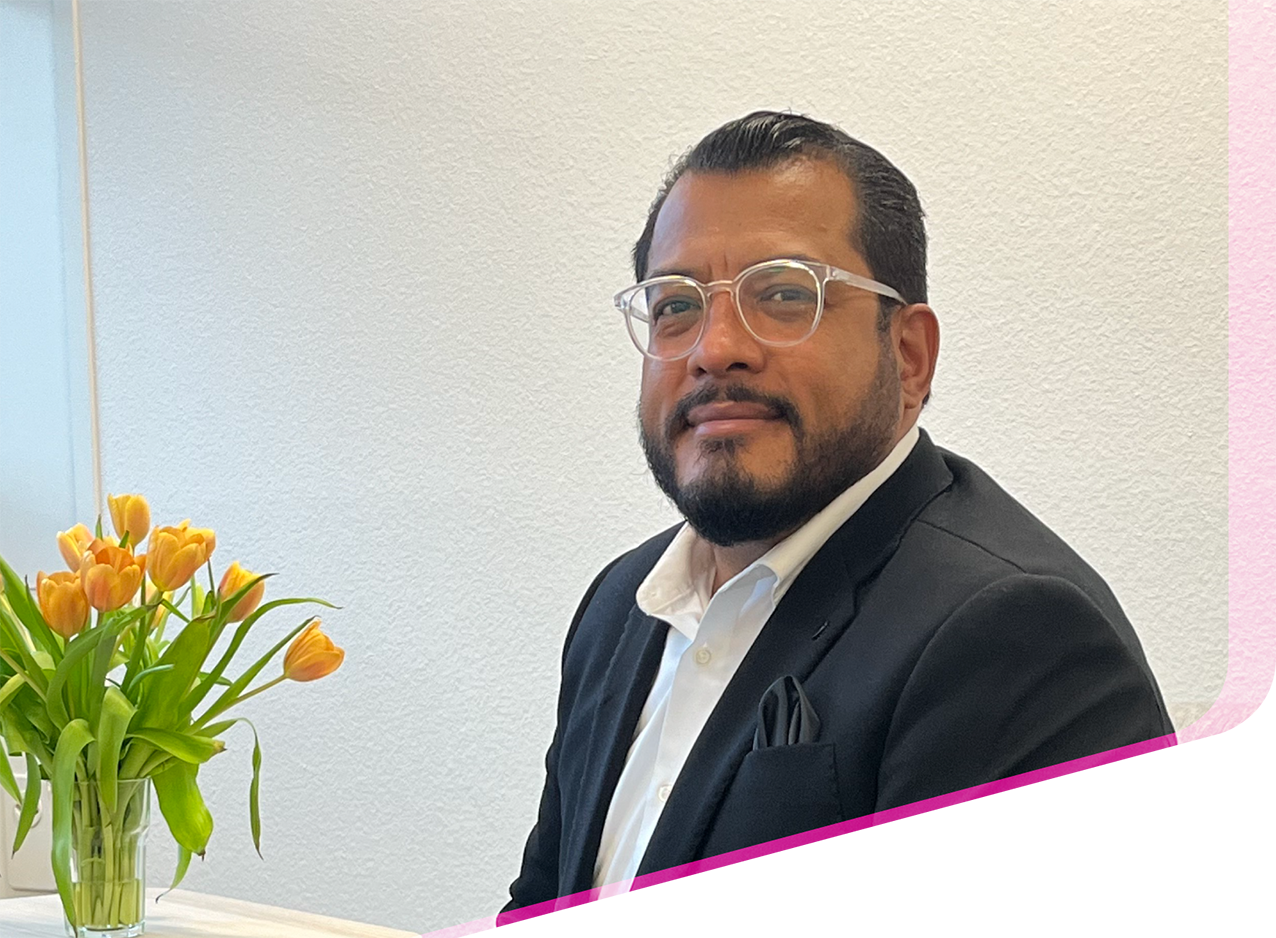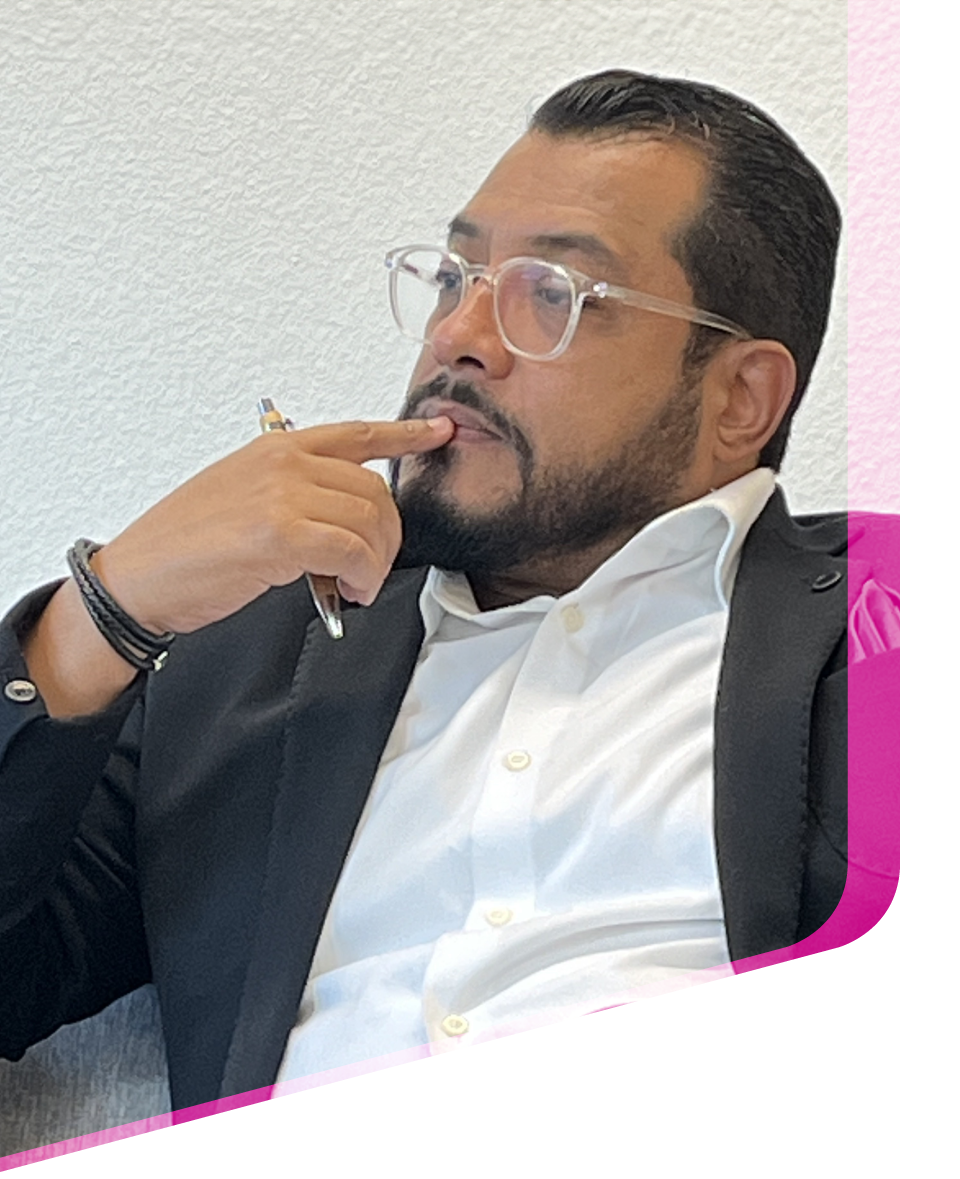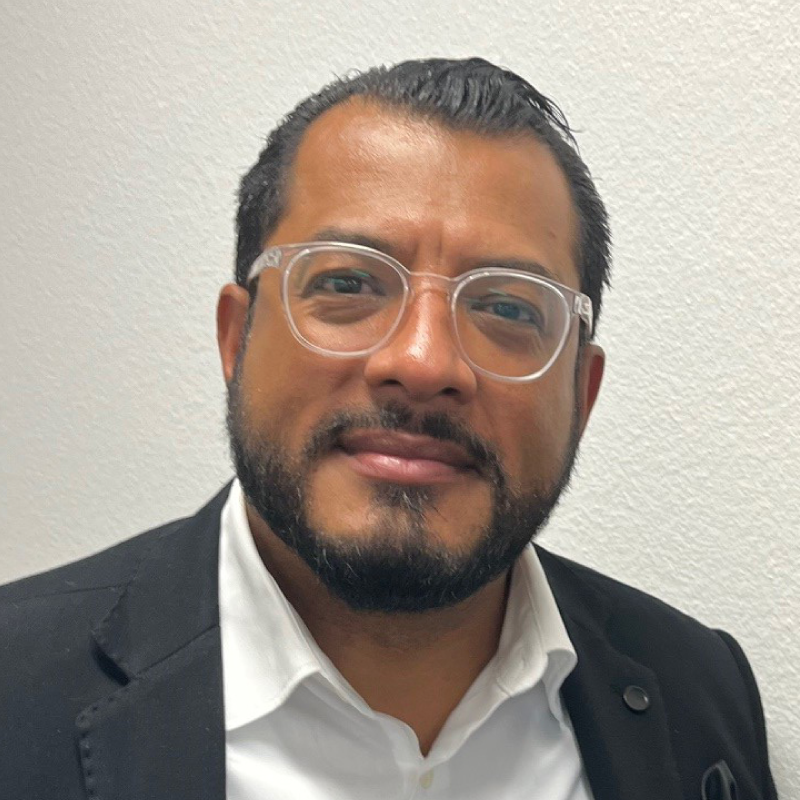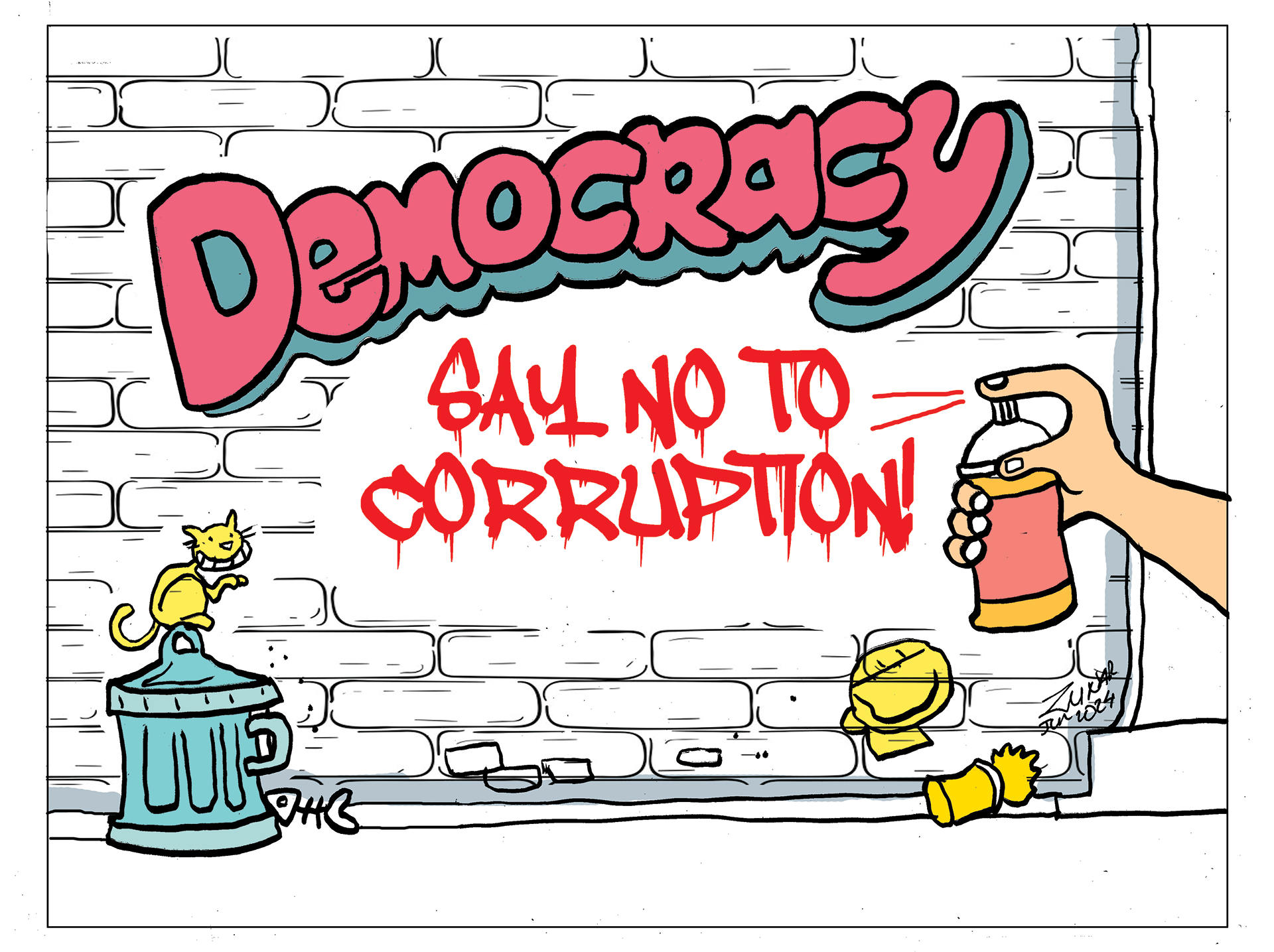
Nicaragua
Nicaragua
Nicaragua
Félix Maradiaga
Félix Maradiaga
Félix Maradiaga
Academic, political activist, and human rights advocate
Academic, political activist, and human rights advocate
Academic, political activist, and human rights advocate

Nicaragua
Félix Maradiaga
Academic, political activist, and human rights advocate
“I will never stop longing for a country of tolerance and freedom, where everyone, regardless of our differences, can live together in peace.”

VITA
Félix Maradiaga is a Nicaraguan academic, political activist, and human rights advocate, dedicated to restoring democracy in his home country. He served as the youngest Secretary General of the Ministry of Defense from 2004 to 2006, before Daniel Ortega came to power. Previously, from 1997 to 2003, he led efforts to support ex-combatants and war victims in Nicaragua. After leaving government in 2006, he founded a center focused on non-violence and pro-democracy activism, which led to accusations by the Ortega regime of undermining government interests.
During the widespread protests against the Ortega regime in 2018, he survived two assassination attempts and faced numerous fabricated criminal charges. In 2021, Maradiaga announced his candidacy for the presidency in Nicaragua's general election but was arrested by the Ortega government in June of that year. He was detained under inhumane conditions, including prolonged solitary confinement, and sentenced to 13 years for alleged 'conspiracy to undermine national integrity'. He was released in 2023, stripped of his citizenship, and flown to the United States along with other political prisoners. Félix Maradiaga now serves as a university professor in the United States and as the president of the "Foundation for the Freedom of Nicaragua." He continues his tireless advocacy for the release of political prisoners in Nicaragua and the restoration of democracy in the country.
What do you want the world to know about Nicaragua today?
I want the world to know that, despite our elusive pursuit of freedom and democracy, we remain a nation that yearns for the opportunity to build a strong democracy. We have endured a civil war that left deep scars on our population, many of which have yet to heal, and we had a brief opportunity for democratic transition in 1990. However, Daniel Ortega of the Sandinistas returned to power in 2007 due to the erosion of the rule of law. With his return, Nicaraguans lost the modest but valuable progress we had achieved in democracy and human rights. Even so, I want the world to know that, despite Ortega's dictatorship and the fact that most opposition leaders are in exile, we continue to fight non-violently to reclaim our path toward democracy in Nicaragua.
You have called Nicaragua the North Korea of Central America.
Yes, that’s my quote. It was highly controversial when I first began comparing Nicaragua to North Korea because, strictly speaking, my country does not experience the extreme totalitarianism and isolation of North Korea. The two regimes are difficult to compare from cultural, geographical, and political perspectives. However, I use that analogy to illustrate the mindset and the path of isolation that Ortega is leading Nicaragua down. It’s no longer enough to say it’s an authoritarian regime in the Latin American tradition—it’s far worse than that.
What do you mean by that?
Many years ago, when I first toured Europe to inform people about what was happening in Nicaragua after Ortega came to power in 2007, I gave a series of talks at various universities. I titled my lectures “Dictatorships 2.0.” My central message was that contemporary Latin American dictatorships, like those in Venezuela and Nicaragua, had become more sophisticated, often adopting democratic features as a mask to hide their authoritarian nature. This new label allowed them to get away with many human rights abuses because, in the minds of journalists, academics, and activists in Europe, Latin American dictators were those who came to power through military coups or juntas.
In Ortega's case, it was argued that he won the 2006 elections. He had a parliament with different political parties and, in a way, pretended to use democratic rules to advance his authoritarian agenda until 2018, when things changed. But the current situation is far more extreme. Ortega has shed that mask and adopted a more radical approach. To explain this dramatic shift, which has taken Nicaragua to an unprecedented level of repression, I found that the analogy of a tropical North Korea was more fitting to illustrate what we are witnessing after 2018. This is not merely about the weakening of democratic institutions; it is about the complete dismantling of the rule of law and an increasing isolation of Nicaragua from the rest of the world.
How?
By expelling NGOs and every single UN agency from the country. By shutting down private universities. By expelling the Vatican mission from Nicaragua. By stripping dissidents of their nationality. By killing political prisoners in their cells. By using arbitrary detention to crush the opposition. And by moving toward a one-party system, which is Ortega’s next step.
And, by turning the whole government into a family affair, right?
Yes, exactly. That’s another characteristic, indeed.
Could you elaborate a little bit?
First and foremost, it’s essential to emphasize that Ortega has never been democratic. Despite the nostalgia some may feel for the Sandinista movement of the 1980s, the Sandinista party was never—and never claimed to be—democratic in the Western or liberal sense. Their models were the so-called German Democratic Republic and communist Cuba. To be clear, I believe in liberal democracy and a commitment to universal human rights. By that standard, neither the Sandinista party nor Ortega himself has ever been democratic.
That said, it’s important to acknowledge that the Sandinista Front of the 1980s was not controlled by the Ortega family; it operated as a political party under a structure known as the National Directorate. Today, however, the Sandinista Front serves the Ortega family. Ortega has expelled, imprisoned, and even eliminated party leaders, consolidating power by placing his family in key positions. He has made Sandinista congress decisions non-binding, with all authority now concentrated in him as the supreme leader. He appointed his wife as vice president and spokesperson, and installed his children in ministerial roles, establishing an unprecedented personality cult in Nicaragua. What we’ve witnessed is a transformation from a Marxist party in the 1980s to a regime increasingly resembling North Korea.

Over 700,000 Nicaraguans have left the country. That’s 10% of the population. What are the effects of such a mass exodus and brain drain? What does that do to the economy, for example?
The mass exodus of Nicaraguans has created a paradox in economic terms. With more than 10% of the population now working abroad, remittances - the money sent by those living in exile to their loved ones back home - have surged exponentially. Some experts estimate that by the end of 2024, one in every five Nicaraguans will be living outside the country. Today, these remittances are the lifeblood of Nicaragua’s economy, making up 28% of the Gross Domestic Product. In relative terms, that’s almost five times more than what we earn from beef, one of our main exports, and seven times more than coffee, which has historically been our greatest export. I call it a paradox because, on one hand, the country is losing a significant portion of its most skilled workforce and its young, talented Nicaraguans, yet at the same time, the dictatorship that is driving this exodus is economically benefiting from the situation. The economy is fueled by the pain of exiles and the displaced, for behind every euro or dollar sent by an exile lies a human story of repression.
Twenty-six universities have been shut down in Nicaragua, the latest being the Central American University, run by Jesuits. Tell us more about the current persecution of the clergy in Nicaragua.
One of the most painful and traumatic aspects of political repression in Nicaragua is the persecution of religious communities. While the Catholic Church is the primary target, this persecution extends to Protestant churches as well. As of February, this year, the regime has arbitrarily shut down over 3,000 non-governmental organizations, including educational, philanthropic, and religious institutions. The closure of the Central American University dealt a severe blow to the youth of Nicaragua, as it was the most important private university in the country. Ortega has also imprisoned dozens of priests, including two highly respected bishops, only to expel them from the country. Over twelve Catholic religious orders have been forced out of Nicaragua, and more than 200 clergy members have been driven into exile. In my own diocese, in my hometown of Matagalpa, some parishes have had to close because their priests are either persecuted, imprisoned or censored.
The government seems to care very little about pressure from outside. Do you think the international community still has a role to play? If yes, how?
Ortega cares little about the international community, and this is a troubling sign of the metamorphosis of contemporary dictatorships, particularly those that rely on alliances with China, Russia, and Iran, as is the case with Nicaragua. These regimes deliberately reject international law and believe they have learned to evade sanctions by supporting one another. However, it would be a grave mistake to think that the international community has no role to play. On the contrary, I am convinced that the world’s strongest democracies must work in close coordination to exert greater collective pressure.
We need a democratic ecosystem that acts with more synergy - politically, economically, diplomatically, and even in terms of global security. If dictatorships are working together, then the political leaders of the free world must learn to find common ground in confronting these regimes and recognize them as a systemic threat that requires a unified response. For instance, Ortega is one of Vladimir Putin’s key allies in Latin America. We should not view that alliance as merely symbolic or rhetorical. Ortega should feel the full consequences of his ties with Russia.
What needs to happen for Nicaragua to find its way back to democracy and the rule of law?
The situation in Nicaragua is extraordinarily complex. Ortega controls all the instruments of repression, including the police, the military, and thousands of armed loyalists from his party. He has wielded terror in ways that even surpass the dictatorships of Nicaragua's past. However, while the short-term outlook may seem bleak, the truth is that Ortega has never been as unpopular as he is now, even within his own party base. The most optimistic analyses estimate his support at 13%, though I believe it’s even lower. Levels of discontent are extremely high.
Moreover, Ortega has created such an extreme personality cult that he has left his own movement without a clear line of succession. Overcoming this dictatorship won’t be easy, and it will likely require navigating through a traumatic scenario first. To achieve this, four fundamental conditions must be met: being ready to seize the crisis that may be looming as an opportunity for change, opposition leaderships working together beyond ideological divisions, a population willing to take to the streets again, and the solidarity of the international community at the crucial moment.
Thinking ahead, how optimistic are you when you try to imagine Nicaragua’s future?
For anyone embarking on this journey of civic struggle to reclaim freedom, it is crucial not to lose the battle of hope. Many battles may be lost, but never the battle of hope. That’s why I remain an unshakable optimist. Even in the darkest moments, the human spirit’s yearning for freedom and justice remains unbreakable. I am driven by the belief that most people are good-hearted and noble, even those who have, at times, been swayed by opposing ideologies. I will never stop longing for a country of tolerance and freedom, where everyone, regardless of our differences, can live together in peace.
If there was a regime change and you got your citizenship back, would you return and try to become president again?
The pursuit of the presidency has never been my primary goal, but in recent years, I felt a moral imperative to step up and lead a movement for democratic change under very difficult circumstances. One positive outcome of this crisis is the rise of many young Nicaraguan leaders who are both enthusiastic and capable. My deepest hope is to return to Nicaragua and contribute to the democratic reconstruction of my country, serving in whatever capacity best aligns with the aspirations of a people who have suffered greatly yet remain steadfast in their desire for freedom. I have faith that this will come to pass.
Nicaragua
